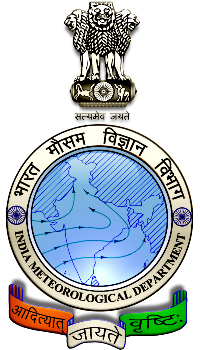IMD Unveils Initiatives to Monitor Weather to Mark its 150th Year
To mark its 150th anniversary, the India Meteorological Department (IMD) recently launched a National Framework for Climate Services (NFCS). Several other initiatives were also introduced to better monitor and predict extreme weather using the latest science and technology.
The Purpose of the NFCS
The NFCS offers users a platform to regularly exchange timely climate data. It aims to significantly enhance the delivery and utilization of climate services. The goal is protecting India’s critical sectors from climate hazards.
Priority Sectors Identified
Collaborating with agencies already getting IMD climate data, NFCS focuses on disaster risk reduction, water resources, health, energy, agriculture and food security. Tailored climate information for these sectors can maximize benefits.
Panchayat Weather Service Introduced
Among major initiatives launched is the Panchayat Weather Service. It will provide all India panchayats customized weather forecasts on parameters like temperature and rainfall. Warnings will also be issued in regional languages. This service will aid farmers and disaster management.
Dubbed as “Weather Forecasts for All Households” under the Panchayat Weather Service initiative, hyperlocal weather predictions and alerts will now be provided to every panchayat in India, unlike current practice of only up to the block level. This new outreach by IMD will offer granular information on temperature, humidity, wind as well as warnings on severe events customized to the panchayat level across parameters.
To ensure information permeability, the forecasts and advisories will be disseminated in 13 languages including English and Hindi to each village via respective panchayat heads and secretaries. This level of tailored weather insights is expected to greatly aid farmers in planning key agricultural activities around sowing, irrigation, fertilizer use based on upcoming local weather patterns.
By leveraging precise weather forewarning, farmers can reduce crop losses from extreme events and optimize inputs like water and pesticides. This can increase incomes through higher productivity. The seamless flow of actionable weather information to the grassroots can enrich every Indian farmer through better informed field decisions.
Mobile App Unveiled
A national mobile app to give users hyperlocal weather updates was released. As part of IMD’s new mobile application, a novel platform called “mausamgram” (weather village) has been introduced. This will enable users to access hyperlocal weather updates including current observations, forecasts and warning alerts for their precise location.
They can check the app’s interactive map and either search by place name, PIN code or GPS coordinates to view tailored data for that specific area. By providing precise GPS-tagged weather insights on parameters like rainfall, temperature etc., mausamgram seeks to offer citizens information granularity up to the village level for better planning their activities.
Decision Support System
Additionally, IMD has developed a Decision Support System (DSS) that provides real-time weather and climate data to diverse sectors such as urban planning, electricity, water resources, healthcare, renewable energy, farming, transportation and tourism.
By providing customized, up-to-date information on parameters like rainfall, wind patterns, humidity levels etc. relevant to these industries, the DSS empowers various stakeholders with actionable insights for planning and operations.
For instance, tourism operators can leverage the system to guide vacation planning or infrastructure investment while energy firms can optimize renewable power generation using granular forecasting.
Month: Current Affairs - January, 2024
Category: India Nation & States Current Affairs








